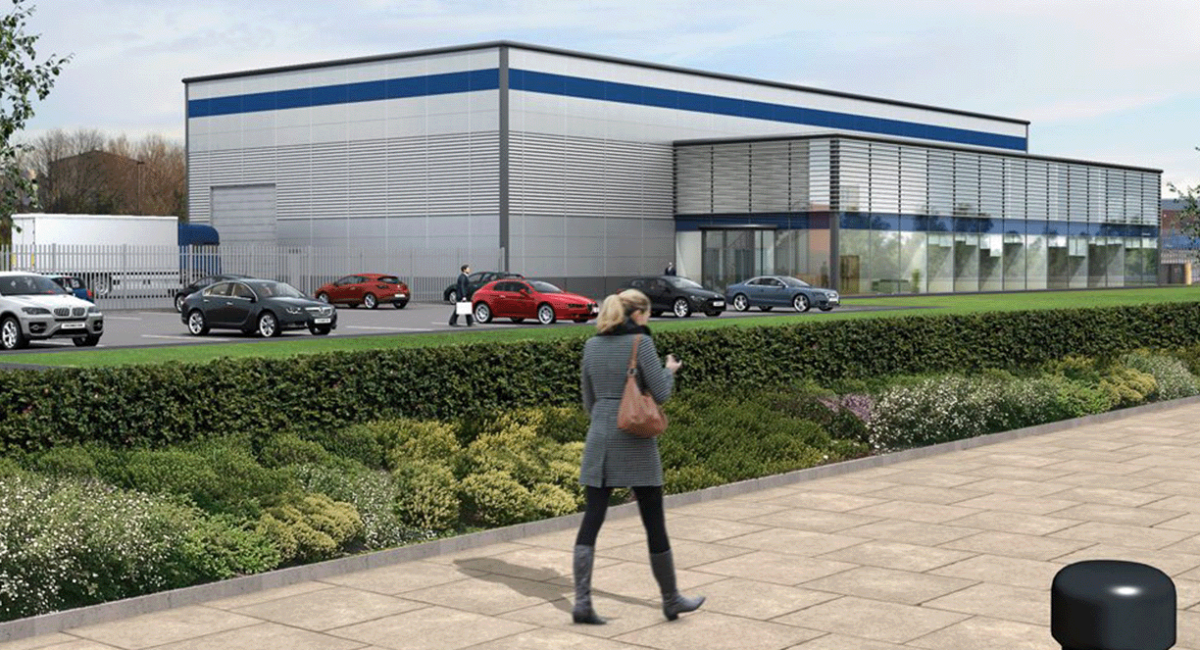A world-leading centre of excellence for hyperbaric testing will be built on the north bank of the River Tyne by Newcastle based engineering group British Engines and Newcastle University, with funding support from the North East Local Enterprise Partnership’s North East Investment Fund.
The Neptune Test Centre will be the first of its kind in the UK and will be the first commercial facility of its kind in the world, with only two other rival test facilities owned by the US and Russian governments.
A planning application is being submitted to Newcastle City Council, and if approved, building will start on the £10m project (including £5m from the North East Investment Fund’s Regional Growth Fund allocation) in early 2015, regenerating the now derelict Spillers Tyne Mill site on Newcastle’s Quayside (acquired by British Engines from the Homes and Communities Agency).
The centre will house four hyperbaric chambers that simulate the environment of subsea depths up to 4,500m. Two of these chambers are currently owned by BEL Valves (one of British Engines’ engineering businesses) and a third by Newcastle University, the major investment will be in a new 4.5 metre long, 2.5 metre diameter chamber simulating the pressure of 4,500m of water – the largest commercially available hyperbaric chamber in the world.
It will not only offer unrivalled research and development opportunities for the university and BEL Valves, but also provide unparalleled testing facilities for other manufacturers of subsea components from across the world.
Richard Dodd, chief operating officer of British Engines, said: “There is a known bottleneck in the industry due to the lack of easily available, large diameter, high pressure hyperbaric facilities, which is only being exacerbated as oil and gas developments move into deeper waters and more high pressure environments. Our business, BEL Valves, has certainly experienced this in trying to gain access to facilities in a timely and cost effective way.
“We already have close links with Newcastle University, collaborating with them on many projects, as well as developing our future engineers. This facility will improve our research and development capability, allowing us to continue developing world-first technology from the north east and further strengthen our links with the university.”
Professor Nick Wright, pro-vice-chancellor for research and innovation at Newcastle University, said: “This new facility will complement the new Neptune National Centre for Subsea and Offshore Engineering being led by the University.”
“This is an incredibly exciting project – bringing together industry and academia to create a unique facility that will significantly enhance research capacity, providing crucial infrastructure for emerging research opportunities. It will also provide a unique training ground for highly skilled graduates, addressing key skill shortages currently faced by UK industry.”
Helen Golightly at the North East LEP, said: “We are delighted to have been able to support this significant development. Investing in new world class and unique facilities such as the hyperbaric testing facilities is essential and firmly puts the North East on the global map. The announcement is a huge boost to the oil and gas sector in particular – the centre will be key to attracting investment from new and existing businesses into the area, helping to deliver more and better jobs.”
The Neptune Test Centre could be complete in mid-2015, with the large deep water chamber being installed mid-2016. As well as the testing facilities the centre will also house dedicated research and development offices for the university, training rooms, conference rooms and visitor facilities such as break out rooms and a canteen.
Alex Lamb, chairman of British Engines, added: “This world-leading project could not have happened without the support of the various local authorities, agencies and the university. British Engines is excited to see the project come to fruition and we’d like to thank everyone involved for having the confidence in a visionary project from the start.”
